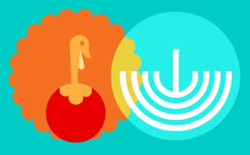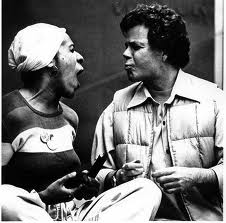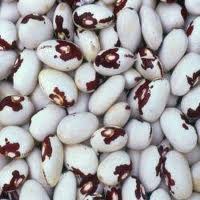 Whenever I meet with a new student one of the things I make sure to tell her/him during our first session is "I am going to learn a lot more than you are." More often than not this elicits a nonverbal facial response "Are you kidding me?" But I kid you not, as all teachers know, this is the truth. Pirkei Avot (Ethics of the Sages) 1:6 teaches, "עשה לך רב וקנה לך חבר’, "Get yourself a teacher, secure for yourself a friend". Rabbi Rami Shapiro gets to the heart of it for me, commenting "A teacher shares what she knows; a friend helps clarify what you know" And that is what happened yesterday in my study session with Raviv, with whom I am studying in preparation for her becoming bat mitzvah next July (we are studying via Skype, she is living in Brazil for two years with her family) At some point in our conversation I wished her a Happy Thanksgivvikuh, and wondered if she would be celebrating both holidays in Brazil. She told me that they indeed were planning on celebrating both Thansgiving and Hanukkah, but that she prefers referring to it as Chanukiving, with the Jewish holiday being the first part of the mash. Raviv is right. In our impulse to recognize both our Americna and Jewish claims we have erred, and in doing so have sent the wrong message to ourselves and to our Jewish-American friends. (Note that we rarely refer to ourselves as "American-Jewish") In a blog post by my friend and colleague Rabbi Mindy Portnoy, she writes, "This year, the entire eight days of Chanukah stand firmly on their own, a separate ritual, metaphorically marking a separate people and tradition, which might not have survived without those brave, controversial, and (yes!) fiercely anti-Hellenistic Maccabees and the creative rabbinic spiritual interpretative layer of a tiny vial of oil. Do we really have to transform these miracles into an over-hyped, commercialized Thanksgivvikuh?" The first time I heard the phrase Thanksgivvikuh it made me laugh - how clever, how creative. And what a great opportunity for a good drash - the quest for religious freedom, how food plays an important part in ritual in helping to raise a secular milestone to the higher level of sanctity. But Raviv is right. Jews have a older narrative, and there is power in our particularism that needs to honored first. America is not the melting pot in which we lose our identities, but one in which we re-imagine ourselves and rejoice in it through the lens of tradition. This past week I was sent a joke that at first made me cringe. Mr. Christian chastises his next door neighbor Mr. Cohen: 'Your son is not going near my kid again; he just has no respect for us and our religion!' 'What's the matter; what did he do?' inquired Mr. Cohen. 'I'll tell you'. said Mr. Christian in a rage. 'He saw our Christmas tree and started making fun.' Really, what did he say?' continued Mr. Cohen. Mr. Christian said, 'He saw our tree and started asking all sorts of ridiculous questions - which kinds of pine trees can be used for a Christmas tree? What's the minimum required height? How close to the window does it need to be? Do too many decorations render it unfit? What if it's under a neighbor's balcony?!' At first, my reaction was probably like yours - oy, the Jews, we're so wrapped up in halacha, the proper way to do things, that we lose sight of the spirit of the thing and suck all the joy out of the moment. There is some truth to that. But isn't is also true that "G!d is in the details"? That the intention with which we do something cannot be divorced from the process of what we do? In fact, sometimes it is more important. (i.e. "It's not what you said, it's the way you said it") Chanukiving? Thanksgivvikuh? The way we say it is important, because it says so much about how we see our Jewish identity within the broader context of living in the "land of the free". And besides, Chanukiving might be read as חנו-giving, give with grace. I kinda like that. It is something that I aspire to do. So thanks Raviv, for being my teacher and helping to clarify what I know. (and an early) Happy Hanukkah to everyone. Shabbat Shalom, R' Mark
1 Comment
 THis past Sunday, March 17, was the birthday of the late Bob Alexander, founder and director of the Living Stage Theater Company, which I served from 1977-1985. (Bob is seen here with the late Rebecca Rice, actress/director, and theater worker extraordinare) Despite his distrust for all things "religious", and disassociation from his Jewish heritage, Bob was my rebbe. One of his favorite quotes was: "In the deepest part of our soul, in the deepest parts of our humanity, we have the need to create. to transform the visciousness and mediocrity of the world into sunlight and peace. Welcome to the place where you can dare to be in your dreams, dare to be strong, dare to be vulnerable. All power to the imagination Love and good courage" It is astonishingly clear to me that these words speak of our soul's longing, pushing and struggling to recognize itself, often in opposition against the realities of the world into which it was born. We were born into this world to create. We are, in Jewish thought, co-creators with the Divine. Creativity, the most powerful way to act in a Godly manner, is our birthright. And it is, like Pablo Casals wrote, "not something to turn on and off like tapwater", but rather the way to live life. In the moment of creation we are "like G!d", all pretense and ego is stripped away, and we are channels for something far greater than ourselves. Truth is revealed, and if we are so blessed, light shines on and through us. Like Moses descending Sinai, we are radiant, and truly free. In its most radical understanding, this means that humankind need not wait for a single messiah to herald the coming of a world perfected. That messenger is here, right now, and is born every minute of every day. If only we could listen, and truly hear his/her message. From "It's In Everyone of Us", by David Pomerance, one of Bob's favorite songs: "It's in everyone of us To be wise Find your heart Open up both your eyes We can all know everything without ever knowing why It's in everyone of us, by and by."  Reb Zalman speaks of prayer as a spritiual tool that is useful in helping us to recalibrate. I take that to mean that the insight gained from prayer guides me to re-member who and what G!d intended for me upon conception (Hmmm....G!d's or mine?) A few weeks ago I planted a number of broccoli seeds, which are now 1 1/2 inches tall and reaching towards the light, awaitng their transplanting upon spring's arrival. How does the broccoli seeed know what it is and what it will become? What do I have to learn from its wisdom? Perhaps part of the answer lies in Hanna Tiferet's beautiful song "Planting Seeds". On this Shabbas, may we all be reminded of who we are. |
Mark Novak is a "free-range" rabbi who lives in Washington DC and works, well, just about everywhere. In 2012 he founded Minyan Oneg Shabbat, home to MOSH (Minyan Oneg Shabbat), MindfulMOSH (Jewish mindfulness gathering), and Archives
June 2017
Categories
All
|
 RSS Feed
RSS Feed
